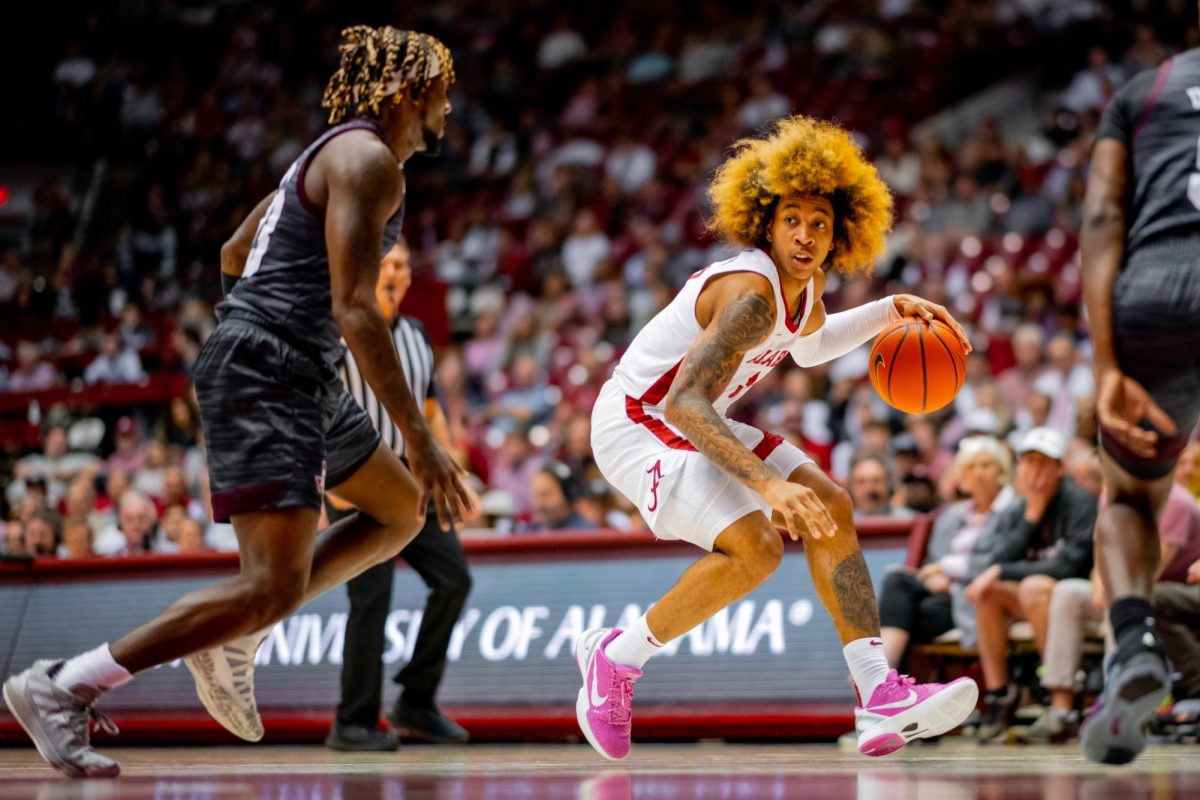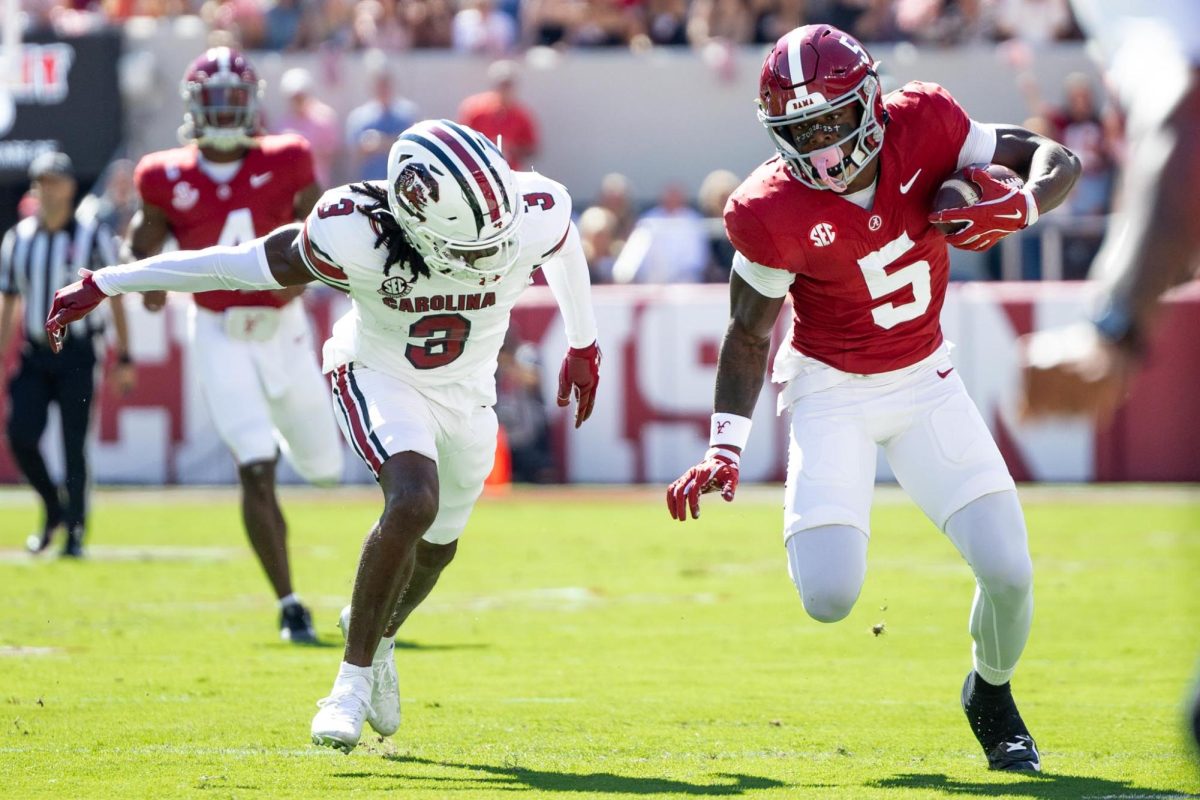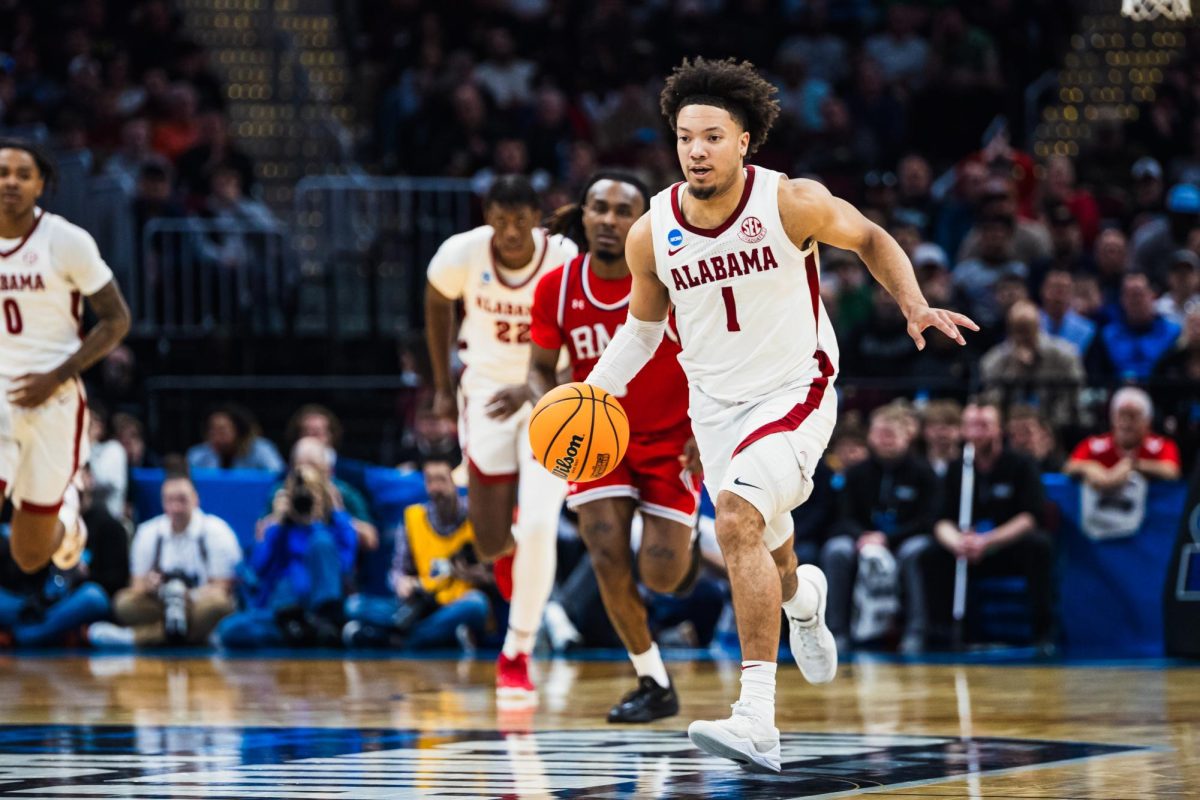Trevor Moawad thinks of himself as a piece to a puzzle. That puzzle, far from one-dimensional, has two crystal balls, one Heisman Trophy and 101,000 screaming fans on autumn Saturdays.
In 2007, the University hired Nick Saban as head football coach of the Crimson Tide football program. In that same year, Saban hired Moawad. Both have been forces of energy for the mental preparation of the football team that has led to two BCS national titles in the span of three years.
Moawad bears the title of mental conditioning consultant with IMG Performance Institute in Bradenton, Fla., where he and his staff work with professional athletes to fine-tune their psychological preparation for high-stress athletic performances.
But Moawad is more of a coach than a consultant when it comes to his work with the Crimson Tide.
“As a consultant, it’s a unique opportunity to spend time directly working with the team throughout the year,” he said.
Moawad, with the help of his staff and various professionals brought in by Saban, teaches the young athletes of the Crimson Tide football program the fundamentals of mental preparation. The players enter into classes throughout the summer that concern how mood impacts performance, how the mind processes distracting information like the roar of the crowd and how decisions, especially mistakes, can turn into out-of-control consequences on the field.
“Most college programs, I think, do it the wrong way,” he said. “They bring in a Navy SEAL or a speaker that attempts to motivate the athletes. When you’re trying to motivate every now and then, all you can impact is an athlete’s willpower, and willpower is a short-term fix compared to an athlete’s real self-image. Self-image has to be trained just as speed, strength and skill are trained.”
During training camp and the regular season, world-class athletes, substance abuse professionals and experts in the field of leadership or improvisational training visit the team to facilitate the mental conditioning of the players.
“I think that’s very unique to the Alabama football program because Coach Saban is very comfortable bringing in outside professionals,” he said. “Not all coaches want anyone else in front of their teams.”
Moawad is quick to describe his role as a single thread to the larger fabric of the Crimson Tide coaching staff. He is even quicker to dispense with the title of sports psychologist.
“I am not brought in to be the motivator,” he said. “The coaches handle a lot of the motivation. Our piece is less about motivation and more about education.
“If you can help the athlete understand how they affect themselves, then ultimately that helps them understand that they have control over their lives and are more willing to set goals. When athletes set goals, that’s when they become motivated. You ultimately want it to be more about the athletes being motivated than you trying to pull the strings around them,” he said.
One drill Moawad uses to teach players concentration involves elementary arithmetic. First, a player attempts to write down a sequence of numbers in ascending order of value. Second, the player has to complete the same task with a teammate staring silently at his work. Third, the player must redo the task while his teammate shouts insults at him. The drill educates the players on the power of distraction leading to mistakes in the simplest of procedures.
“I think the biggest difference between an athlete that plays football at Alabama versus a student is the sheer volume of people that you compete in front of,” he said. “As an athlete, you are very much in the public eye, and there are a lot of different things that can pull on your ability to concentrate effectively. You can’t pretend that the people aren’t watching because you know they are.”
To clear the players’ minds in the midst of a game, Moawad encourages the athletes to internalize and focus on one task at a time.
“As long as my mind is focused on the specific task at hand, then I can focus on it without being distracted by the 101,000 fans yelling in Bryant-Denny Stadium,” he said.
Saban’s commitment to defining and grasping one’s goals one day at a time is indicative of his belief in self-determination, the overarching goal of “The Process” practiced by the Crimson Tide.
“Saban has a commitment to developing the total student athlete,” he said. “Our statement is, ‘First you form a habit, and then that habit forms you’.”
“It’s a fun program to work with because you know for a fact that Coach Saban is going to have the right process in place,” he said.








